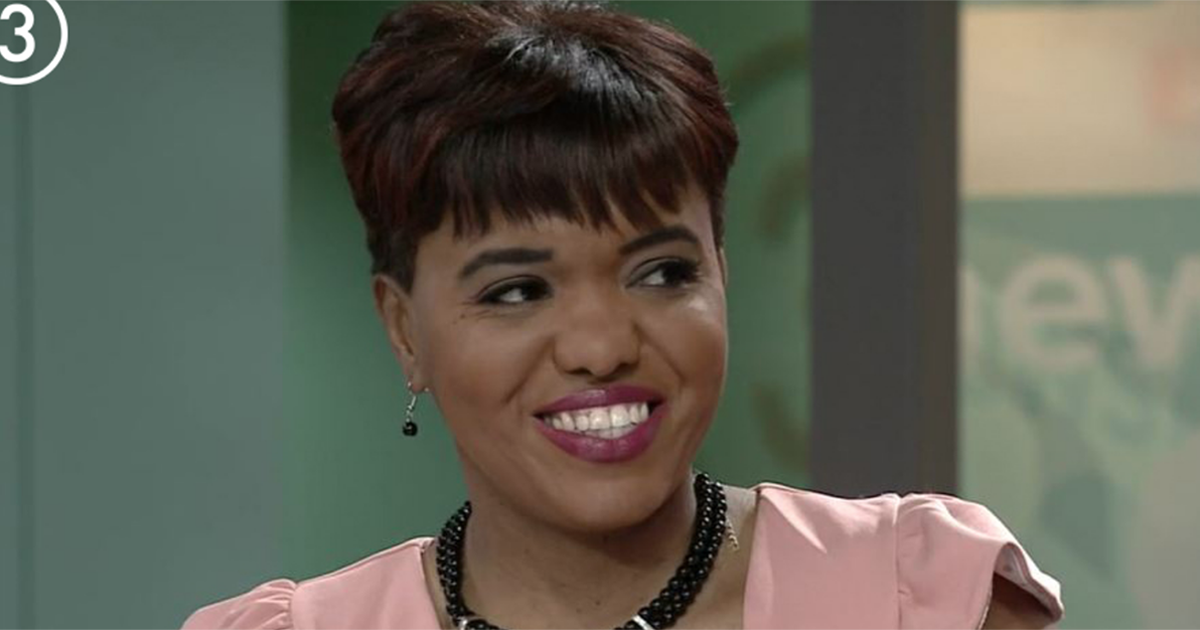The Importance of Getting a Mammogram
- Beloved Cleveland, Ohio-based television news anchor Danielle Wiggins, 40, is bravely sharing her story of being diagnosed with breast cancer, and urging women to get their mammograms.
- SurvivorNet experts say it is very important for women to get a mammogram every year, especially if you haven't yet gone through menopause.
- Black women have a 40% higher death rate from breast cancer. Among women under 50, the disparity is even greater: The mortality rate among young Black women is double that of young white women.
"Nobody ever expects to hear the words: 'You have cancer,'" Wiggins told the television station where she works, WKYC News 3.
Read MoreWe love you, @DaniWKYC! We’re all showing our pink power support after she shared a very personal story about her recent diagnosis with breast cancer. Join us in sending her lots of love and well wishes. https://t.co/5Fhzss48Vs pic.twitter.com/1kXM2mKnMK
WKYC 3News (@wkyc) March 18, 2022
Danielle Wiggins' Breast Cancer Diagnosis
Wiggins said her journey began at the end of last year, when she turned 40 years old. The Cleveland Clinic sent her an email to schedule a mammogram (the process of using low-energy X-rays to examine the breast for cancer diagnosis and screening).
She scheduled the appointment for December, but in November, she touched her breast tissue and felt something that didn't feel right. "Something feels off with this," she remembers thinking.
Once she had the mammogram, the results came back abnormal, so she was scheduled for a diagnostic mammogram just last month. The procedure showed a small lump the same one Wiggins had felt months prior. She went in for a biopsy two weeks later, which confirmed her worst fear: she had breast cancer.
Wiggins asked her doctor if there was something she did wrong to cause this unfortunate diagnosis, but the doctor said: "Sometimes it's just bad luck."
"She said I had the most common form, but she said, 'But you're 40.' I started crying. I just learned that nationally the guideline is 50 years old to get a mammogram. If I would not have gotten a mammogram until I was 50, I would not have made it until I was 50 years old," Wiggins said.
"I don't know how I feel sometimes," she added. "It's just moment by moment. In this moment, I feel great. Maybe in five more minutes it will be like, 'Oh my gosh, I cannot believe I have cancer. I am only 40 years old.'"
"I want life. I want people who bring life around me. On the morning show, it has been a great distraction. You'll hear me in the background laughing, but it helps because it brings life."
The Importance of Getting a Mammogram
Dr. Connie Lehman, director of the breast imaging clinic at Mass General Hospital in Boston, previously SurvivorNet that it is very important for women to get a mammogram every year, especially if you haven't yet gone through menopause.
When Should I Get a Mammogram?
"We know that cancers grow more rapidly in our younger patients, and having that annual mammogram can be lifesaving," Dr. Lehman said of the importance of getting a mammogram to diagnose breast cancer. "After menopause, it may be perfectly acceptable to reduce that frequency to every two years."
"But what I'm most concerned about is the women who haven't been in for a mammogram for two, three, or four years, those women that have never had a mammogram," she added. "We all agree regular screening mammography saves lives."
"I want to be completely clear: If you are between 50 and 74 and you have not had a mammogram in the last two years, you are overdue. Please get a mammogram."
Racial Disparity in Cancer Care
It remains an unfortunate fact that Black Americans have the highest cancer death rates, as well as the shortest survival times, of any racial or ethnic group in the United States.
Black men with prostate cancer are almost twice as likely to die from the illness as white men with the same disease. There is also the fact that breast cancer is a growing concern for Black women women like Wiggins.
These women were once found to have a slightly lower breast cancer incidence rate, but that's no longer true. According to data compiled by the American Cancer Society and reported by the Breast Cancer Research Foundation, the breast cancer incidence rate for Black women is now close to that of white women.
"… the mortality rates are markedly different, with Black women having a 40 percent higher death rate from breast cancer. Among women under 50, the disparity is even greater: The mortality rate among young Black women is double that of young white women," according to BCRF.
Black Women Die From Breast Cancer at Shockingly Higher Rates Than White Women
Linda Tantawi was previously the chief executive officer of Susan G. Komen New York City's affiliate. (She's now the CEO of The Lustgarten Foundation Pancreatic Cancer Research.) While with the Komen organization, she en-enforced this sobering statistic while Black women and white women are diagnosed with breast cancer at the same rate, Black women are 40% more likely to die.
"That is unacceptable," she previously told SurvivorNet.
"Disparities in access to care are prevalent throughout the United States and increase women's risk of dying from breast cancer," she added.
Here at SurvivorNet, we strive to close this racial gap for good. Close the Gap is our ongoing effort to raise awareness for the huge disparities that exist for minorities when it comes to cancer care. We partnered with NYU Langone and the Perlmutter Cancer Center, along with top doctors, survivors and cancer community executives, to enlighten, challenge and educate.
Learn more about SurvivorNet's rigorous medical review process.


